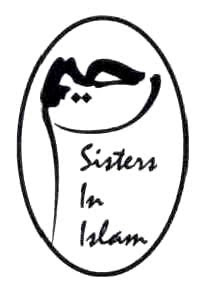
Sisters in Islam calls for an end to child marriage as it is an unacceptable practice in the present day and age. It is shocking that this practice still exists in a country like Malaysia because of a loophole in the Islamic Family Law and a continuing belief that Muslim girls can be married off once they reach puberty.
Any campaign to reduce the practice of child marriage in Muslim societies face particular criticisms and challenges from conservative religious forces, as can be seen in the controversy over the two recent cases of child marriage in Kelantan.
It is argued that in Islam, a girl is allowed to marry once she reaches puberty, thus no law that sets a minimum age of marriage can apply to Muslims. The Islamic Family Law of Malaysia sets this at 16 years for girls and 18 for boys. But exceptions are allowed with the permission of the Shariah Court.
We argue, however, that the onset of puberty is no indication of sufficient maturity for marriage. While the Qur'an does not state a specific age as the age of marriage, Surah an-Nisa’ 4:6 requires that when orphans reach the “age of marriage” or “a marriageable age” they can be tested for “sound judgment” or “maturity of mind.” This indicates that a marriageable age is linked to soundness of judgment and maturity of mind. Puberty alone is not sufficient.
There are those who support child marriage on the basis of the practice of the Prophet s.a.w.. But why is the Prophet's marriage to Aishah selected as the exemplary age of marriage for Muslims while his marriage to Khadija, a widow 15 years older than him or his marriage to other widows and divorcees ignored as exemplary practices?
There is also new research based on Hadith and historical events in the life of the Prophet s.a.w. that questions the commonly held belief that the Prophet s.a.w. was betrothed to Aishah at the age of six and consummated the marriage at the age of nine. This should also be considered in using arguments to justify child marriage in Islam.
The Islamic Religious authorities and the Ministry for Women, Family and Community Development must investigate the cases of the 11-year-old girl married to a 41-year-old man in Kuala Krai, and the 10-year-old girl married to a 40-year-old man in Pasir Mas.
The girls are children protected under the Convention on the Rights of the Child and Malaysia’s Child Act. Several of their rights and protections have been violated. Under the CRC, which Malaysia is a signatory, a child has an inherent right to life, health and education. The men could be prosecuted under the Penal Code for statutory rape if their marriage is illegal under the Islamic Family law. The minimum age of marriage for Muslim girls must be raised to 18 to be in compliance with the Child Act which defines children as those below the age of 18. The loophole in the Islamic Family law must also be closed to prevent marriages below the age of 18.
Many studies have shown that child marriage is harmful to children (meaning girls below the age of 18). Such marriages result in many consequences, including:
• Denial of childhood and adolescence: the loss of childhood and adolescence, the forced sexual relations and the denial of freedom and personal development have profound psychosocial and emotional consequences on girls.
• Denial of education: once married, girls tend not to go to school.
• Health problems: these include premature pregnancies which cause higher rates of maternal and infant mortality and cause hormonal and physical changes which confuse the girl child’s body growth. Teenage girls are also more vulnerable to sexually-transmitted infections, including HIV.
• Abuse: this is common in child marriages. Research in several countries found that women who marry before the age of 20 were more likely to report experiences of physical or sexual violence when they started living with their husbands.
We call upon the Malaysian government to take action to put a complete stop to the practice of child marriage as it entails many economic, social and health risks, and does not protect girls or secure their future. It also violates Malaysia’s laws and international obligations under CEDAW, CRC, Beijing Platform for Action and the Putrajaya Declaration of the Non-Aligned Movement.
Datin Paduka Marina Mahathir
On behalf of Board of Directors
Sisters in Islam
12 Mar 2010




No comments:
Post a Comment